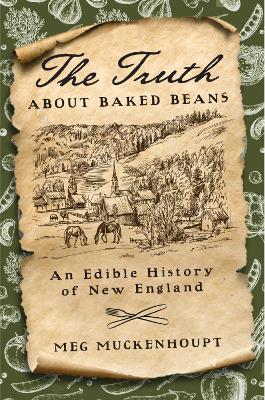Reviewed by annieb123 on
The Truth about Baked Beans is a fascinating miscellany history of the culinary traditions and roots of New England and the people who live there. Due out 25th Aug 2020 from the NYU Press, it's 352 pages (in hardcover) and will be available in hardcover, audio, and ebook formats.
It has an accessible and engaging narrative. The author starts by examining the origins of the iconic Yankee staple: Boston brown bread and baked beans. I had grown up never once questioning the story that it was handed down from "Indian" cooks. The author makes a compelling argument for a much later origin in the 19th century coinciding with a strong drop in local sugar prices (and a wish to market the area's cultural and tourist attractions to an upwardly mobile traveling middle class).
There are some historically period recipes reproduced here for things varied (and delicious sounding). Recipes for fried dough, plum cake, pierogis, greek pizza and more add some interest and will be fun to reproduce and try, but by far the emphasis is on the history behind the development and blending of the cultures which make up New England.
The book is meticulously annotated throughout. The author has cited both period and modern scholarly research to support the narrative. There are numerous chapter notes, and an index (to come in the release version). The chapter notes alone will keep keen readers reading for ages.
The author has a casual academic style of writing; accessible and careful, with proper annotation, but not overly convoluted or impenetrably difficult to read. She manages to convey a wealth of information without being pedantic or preachy. I really enjoyed reading this historical catalogue of how closely food is intertwined with place, with social development and expansion, and with the people who live in New England.
This would be a great choice for libraries, local historians, food historians, period reproduction cooks, Bed & Breakfast/hospitality, or for fans of New England cuisine.
Five stars. It's abundantly clear that the author has poured prodigious effort and careful academic research into this tome. I can't imagine there's much left unanswered about New England's culinary traditions. I feel much enlightened anyhow.
Disclosure: I received an ARC at no cost from the author/publisher for review purposes.
Reading updates
- Started reading
- 1 August, 2020: Finished reading
- 1 August, 2020: Reviewed
